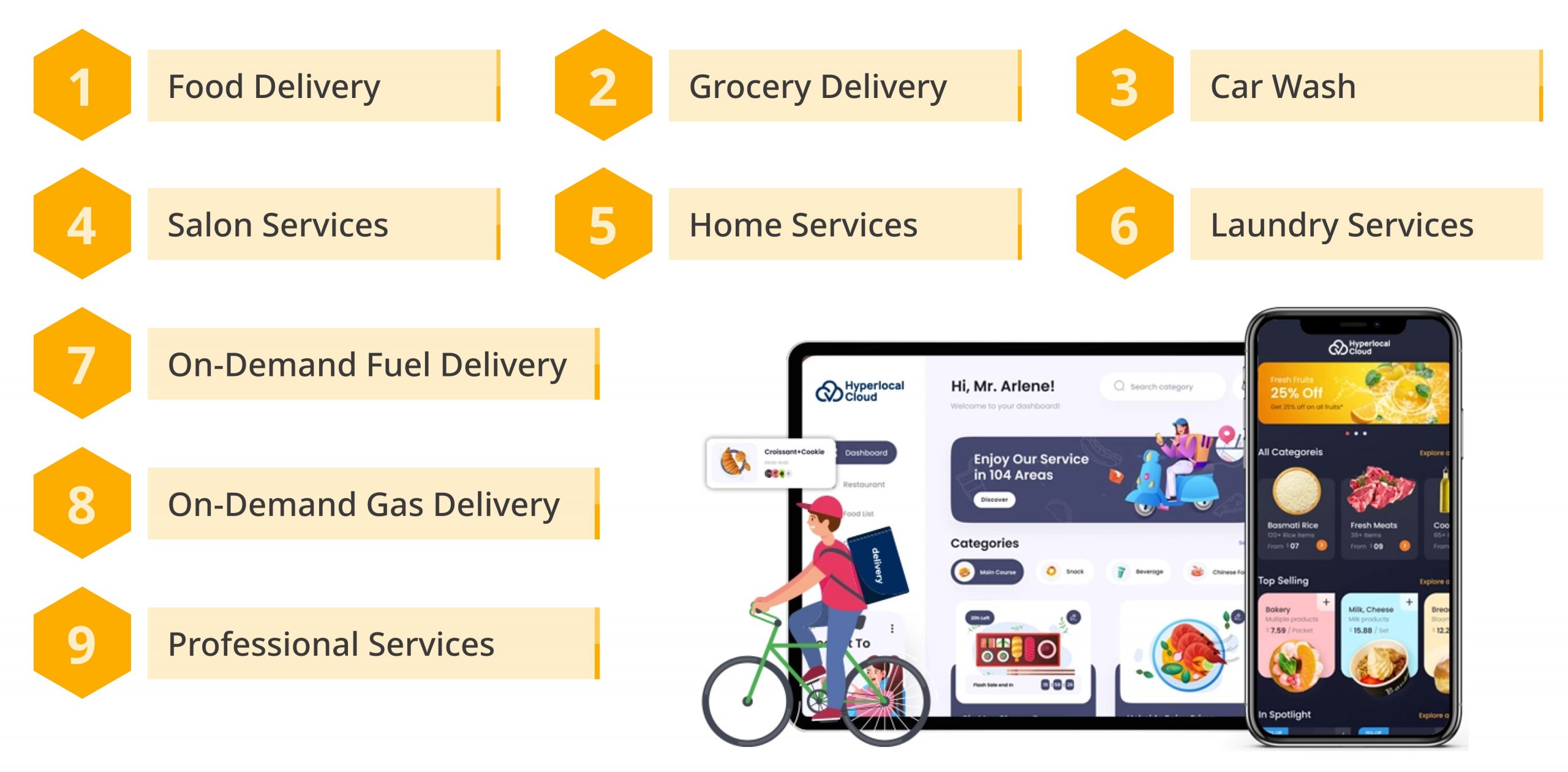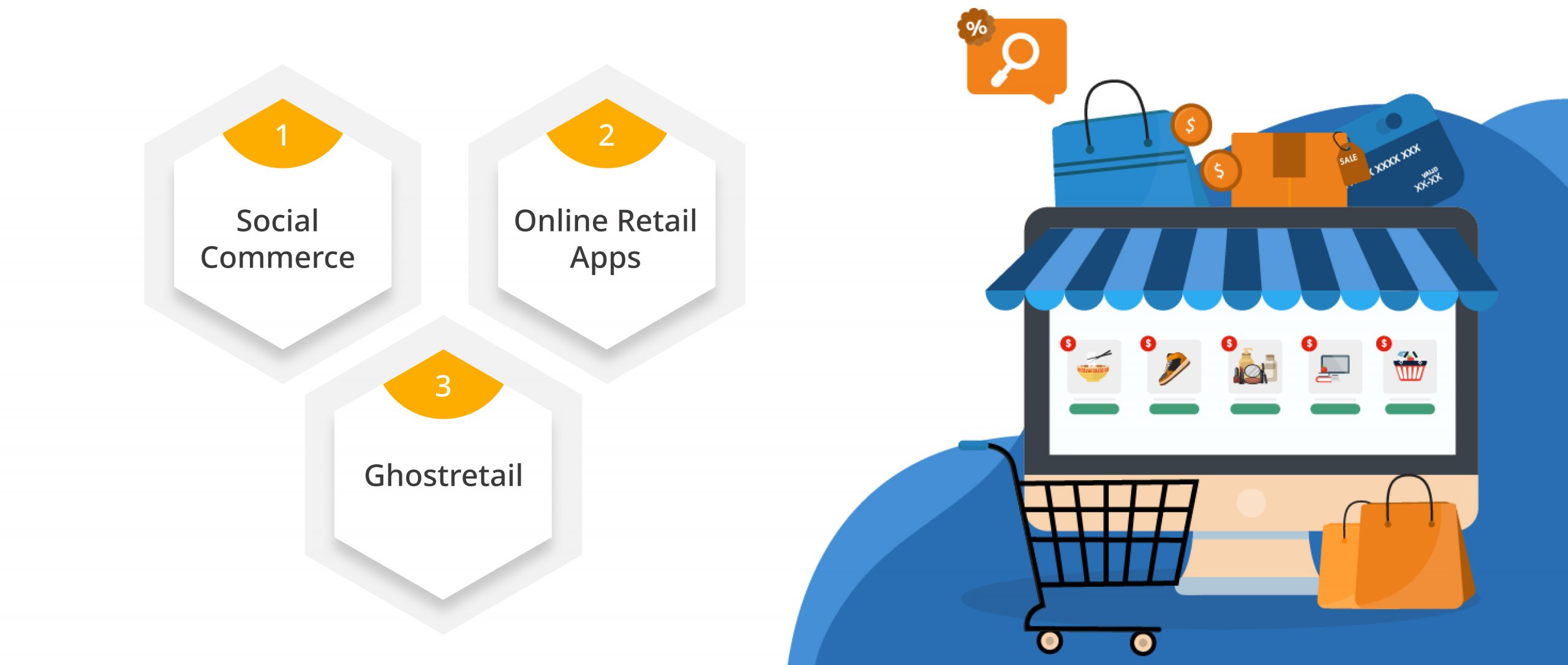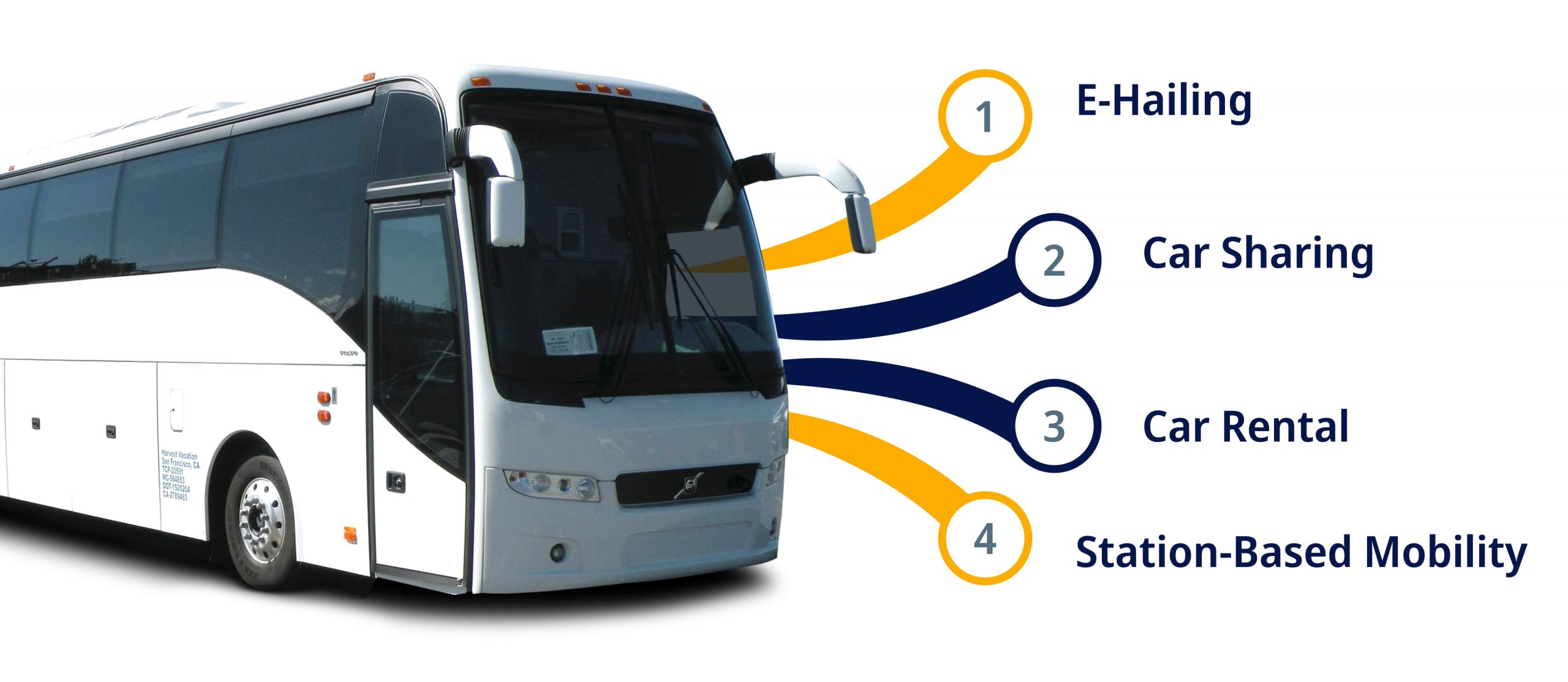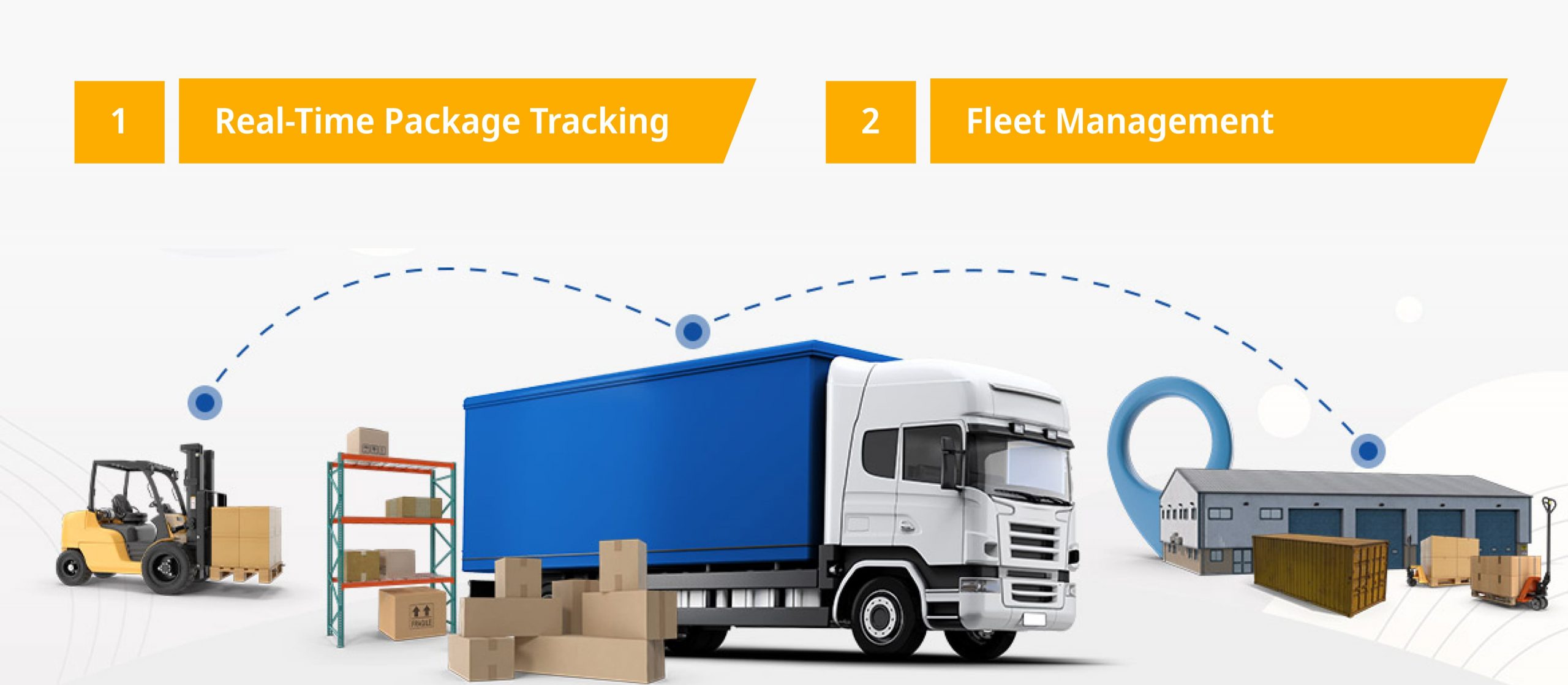Quick Overview:
The on-demand economy is powered by technology-driven platforms that offer instant access to products/services per customer requirement for convenience. Rapid advancements in cloud, digital payments, mobility, and AI enable healthcare, hyperlocal, eCommerce, education, logistics, and other sectors to embrace these customer-centric operating models. By focusing on flexibility, personalization, and real-time fulfillment, on-demand businesses are disrupting traditional industries by effectively harnessing connectivity and data intelligence to make consumer life easier and more efficient.
The on-demand economy has revolutionized how we access services. With just a few taps on our phones, we can call practically anything to our doorstep – from groceries and meals to rides and doctors.
This new era is driven by technology-enabled on-demand service industries catering to our instant gratification. On-demand doctor consultations, food delivery services, online retail, virtual tutoring, fitness apps, ride-hailing services, travel bookings, and real-time package tracking are now deeply embedded into our lifestyles.
The convenience and personalization offered by these industries continue to displace old models reliant on in-person interactions and intermediaries.
According to a post, the global on-demand service revenues are expected to reach multi-million or billion USD by 2023 or 2030.
This raises the question, what is driving this phenomenal growth?
Could it be the four-fold decrease in wait times that on-demand services provide? Or the ability to compare costs and quality at the tap of a button?
To understand and find the answers, let’s get into the details. This blog post explores eight service industries driving the on-demand economy.
On-Demand Economy Driven By Service Industries
The on-demand service economy has brought positive changes to various sectors, including those traditionally believed to be resistant to change. Ride-hailing has revolutionized transportation, online food delivery has enhanced the restaurant industry, and telemedicine is positively transforming healthcare.
Elevate your brand with cutting-edge on-demand solutions.
Below, we explore vital industries propelling and being transformed by this consumer-driven revolution.
1. Healthcare
The healthcare industry has adopted the impact of on-demand economy to provide more convenient medical services and information access.
Telemedicine alone is expected to grow at a CAGR of 30% to reach $559 billion by 2027, enabling patients to consult doctors through video chat or phone without visiting hospitals.
Key players in on-demand services like Practo, DocsApp, and mFine connect patients to vast specialist and GP networks. Other services like AI-based diagnosis, remote monitoring, home sample collection, and fitness coaching are also gaining traction.
For example, HealthifyMe provides 24/7 access to experts who offer tailored diet and fitness guidance.
Aging populations, doctor shortages, lack of primary care access in rural areas, and a shift towards preventative care fuel the demand for healthcare on-demand services.
Advancements by healthtech software development companies are also making telemedicine and mHealth solutions more sophisticated.
Here are some of them:
-
Doctor On-Demand
Due to doctor-on-demand services, users can consult with medical professionals—usually doctors—through applications or web browsers.
Users can obtain medical consultations from any location anytime due to this service, which transcends geographic boundaries. Practo, Lybrate, and MFine are notable apps in this category.
-
Online Appointment Scheduling
One service driving growth in the healthcare sector is online appointment scheduling. Patients can easily arrange appointments with medical specialists thanks to its accessibility through online platforms such as browsers and apps.
It provides unmatched ease and flexibility by eliminating the necessity for phone calls or in-person meetings. Prominent service suppliers consist of Appointy and Zoho Bookings.
-
Virtual Care and Monitoring
Virtual care and monitoring software facilitates remote tracking data and vital signs of patients by healthcare professionals utilizing devices and sensors.
-
Digital Prescriptions
Prescriptions can be electronically sent to patients via email or mobile applications thanks to digital prescription services, which simplify the prescription process.
This reduces errors, improves communication between healthcare practitioners, and provides unmatched convenience. Prominent players facilitating digital prescriptions include DrChrono and athenaOne.
The healthcare industry’s adoption of on-demand services has revolutionized patient access to healthcare services and medications. Healthcare service apps play a pivotal role in ensuring that patients can conveniently and efficiently access healthcare whenever and wherever they need it.
Dive into the dynamic landscape of on-demand services in healthcare and discover how critical players in on-demand services are shaping the future of healthcare accessibility.
For healthcare businesses considering software solutions, explore software development services to stay at the forefront of healthcare technology.
2. Hyperlocal Industry
The Hyperlocal Industry refers to on-demand goods and services within a specific geographic area, often as small as a few miles. Leveraging their intimate local knowledge and resources, hyperlocal businesses can offer highly personalized and convenient options that meet customers’ immediate needs.
According to FMI, the global hyperlocal delivery apps market is projected to grow at a 22.6% CAGR from 2022 to 2032 to reach $8.86 billion.
Driving this is the proliferating usage of smartphones and delivery apps, rising consumer demand for speed, and preference for localized niche offerings over mass-market alternatives.
Sectors making the most significant impact include food and grocery delivery, fuel delivery, vehicle maintenance, beauty and wellness services, automation repair technicians, laundry, and home cleaning – all accessible within 90 minutes.
Advanced logistics technologies allow hyperlocal startups to fulfill small orders profitably while integrating deeper with e-commerce.
Dominate hyperlocal markets with on-demand excellence.
Going forward, hyperlocal businesses will continue to thrive by focusing on specialized regional services, establishing hub-based/dark store models for faster delivery, harnessing mobile apps, and using customer data to refine offerings.
When you hire dedicated developers for development for your hyperlocal business, their future is bright as long as speed, convenience, and personalization remain core to the customer value proposition.
Some hyperlocal services driving the on-demand economy include:
-
Food Delivery
Restaurant ordering has become incredibly convenient thanks to applications that deliver food, such as Zomato and Swiggy. Users may track delivery, modify orders, peruse menus, and make payments within the app. With lockdowns brought on by COVID, food delivery has increased dramatically.
-
Grocery Delivery
Customers can purchase everyday necessities and household goods online from grocery delivery businesses like BigBasket, Grofers, and JioMart. Users can choose delivery slots and seamlessly make payments via multiple modes, including cards, wallets, EMI, and cash.
-
On-Demand Fuel Delivery
Startups like Booster and The Fuel Delivery offer on-demand fuel delivery and even vehicle maintenance services. Customers can opt for one-time or subscription-based services.
- Besides fuel delivery, Booster offers corporate fueling, electric vehicle charging, vehicle maintenance, etc.
- Yoshi focuses on subscription plans for fuel fill-ups, oil changes, wiper fluid refills, etc., based on vehicle make and mileage.
-
Car Wash
On-demand car wash services like Appycars, Autoawash, etc., offer doorstep cleaning and servicing of cars without owning expensive infrastructure. Customers can book basic or premium washes and additional services via their website or app.
-
Salon Services
Wellness service providers like UrbanClap and Housejoy provide home services for salon treatments like haircuts, styling, facials, etc. Users can view profiles of professionals, consult, book slots, and make payments seamlessly on-demand.
-
Home Services
UrbanClap also offers appliance repair, cleaning, pest control, and other home service options. Professionals registered on the platform are background-verified. Users can easily assign jobs, track work status, and make digital payments.
-
On-Demand Gas Delivery
Startups like MyLPG and LPGonWheels facilitate on-demand LPG cylinder booking and delivery. Customers can book refills online from private gas agencies without procedural delays. Doorstep safety checks are also conducted during cylinder delivery.
-
Laundry Services
Laundry service providers like UClean, Laundryheap, and Doormint offer free pickups, professional cleaning, and on-demand delivery of clothes. Additional services like dry-cleaning, folding, starching, and pressing are also available.
-
Professional Services
Online platforms also enable on-demand access to financial planners, lawyers, photographers, musicians, and other trained professionals for flexible hiring. Customers can browse profiles, provide job details, and make bookings instantly.
3. E-commerce Industry
The Ecommerce Industry is a vital part of the impact of on-demand economy since it allows consumers to easily order goods and services online and have them delivered immediately.
The incredible growth in recent years is demonstrated by the prediction that global internet sales will reach 5.2 trillion dollars in 2021 and soar to 8.1 trillion dollars by 2026.
Experts emphasize how successfully on-demand services and eCommerce are linked. These two industries have a symbiotic relationship.
Professionals should keep a close eye on trends in eCommerce mobile apps since as the on-demand business changes, so does eCommerce. Keep up with these developments if your company considers getting into eCommerce or developing an eCommerce app.
-
Social Commerce
Platforms like Twitter, Facebook, and Instagram are now essential gathering places for today’s young, and companies use social commerce to use them as platforms for online sales.
Various tactics must be used to enable direct sales, participation through live events, and tailored interactions on these platforms. Social media builds community, increases brand exposure, and boosts sales.
-
Online Retail Apps
The emergence of online retail applications has completely changed how people purchase by providing a wide range of easy home purchasing options.
Well-known on-demand applications like Amazon, Walmart, and Flipkart offer functions including order monitoring, push alerts, messaging, product browsing, and exclusive offers. The ease of use of these apps drives customer demand, significantly boosting eCommerce growth.
-
GhostRetail
GhostRetail introduces a novel concept in on-demand eCommerce, offering customers a personalized shopping experience by directly connecting them with product associates.
This innovative approach employs live video technology, providing a dynamic and interactive shopping experience.
In contrast to traditional eCommerce apps displaying static product images, GhostRetail engages customers through a live co-shopping experience, allowing them to view products from every angle and make informed comparisons.
The eCommerce sector continues to spearhead the on-demand economy, shaping its growth trajectory. It’s dynamic evolution and innovative concepts like GhostRetail highlight the industry’s commitment to staying at the forefront of on-demand economy trends.
Aspiring eCommerce businesses should keep up with the evolving landscape of on-demand economy trends and stay ahead of industry advancements. If your business requires digital strategies hire software developers to ensure cutting-edge tech solutions.
4. Education Industry
The surge in demand for on-demand service industries has remarkably reshaped the education sector, offering unparalleled convenience and flexibility.
E-learning, driven by the on-demand economy, enables students to access educational content anytime, anywhere, aligning seamlessly with their hectic schedules.
The influence of on-demand video streaming platforms like Netflix and Hulu has further propelled e-learning services. These platforms facilitate the delivery of engaging video-based content, enhancing the learning experience for students.
-
Tutoring and Academic Coaching
The COVID-19 outbreak accelerated the demand for online tutoring and academic coaching services. Even with the return of in-person instruction, the enduring appeal of these services underscores their impact. Students find them interactive and easily accessible, driving a surge in demand.
A recent report by Grand View Research reveals the global online tutoring services market’s substantial growth, reaching USD 6.57 billion in 2021. The market is expected to grow at CAGR of 14.7% from 2022 to 2030, underscoring the enduring influence of these services on the on-demand economy.
-
Digital Library
The widespread adoption of digital libraries and e-reader apps has revolutionized the on-demand economy.
Users can now effortlessly access a diverse range of reading materials without location, time, or language constraints. Digital libraries are pivotal in making learning and reading enjoyable, interactive, and straightforward.
-
Online Courses and Certifications
Online courses and certifications are catalysts propelling the education industry’s growth. They make education and skill development accessible and convenient for a broader audience.
The online courses flexibility allows individuals to acquire knowledge while juggling other responsibilities. Online certifications not only open new job opportunities but also contribute to personal development.
The on-demand economy’s influence has significantly broadened access to education and skill development, showcasing the transformative impact of these services on the educational landscape.
The dynamic landscape of on-demand service industries continues revolutionizing education, making learning more accessible and tailored to individual needs.
Revolutionize education services for the on-demand generation.
Discover how these on-demand service industries are transforming education and shaping other rising on-demand service sectors. If you’re interested in leveraging technology for your business, consider to hire dedicated software development teams for customized solutions.
5. Fitness Services
Finding time for fitness can be a real struggle for many, but the rise of on-demand fitness services is changing the game.
These services empower individuals to access workouts and fitness content from the comfort of their own homes, eliminating the need for traditional gyms or studios.
-
Virtual Training and Coaching
Virtual training and coaching platforms have emerged as saviors for those with hectic lifestyles. Enabling individuals to work out at their convenience, these platforms offer a personalized approach to fitness. Future and Peloton lead the way, providing users with effective virtual training and coaching experiences.
-
Mobile Fitness Apps
In a world dominated by smartphones, fitness is just a click away. Apps like Nike Training Club and obé Fitness offer comprehensive solutions, featuring custom workout plans, progress tracking, personalized recommendations, and wearable device integration. These apps increase the likelihood of users staying committed to their fitness goals.
-
Wearable Integration
The integration of wearable technology is a driving force in the on-demand fitness economy. Devices like fitness trackers, smartwatches, and heart rate monitors allow individuals to effortlessly track and monitor their health and fitness progress. Apple Watch, among others, empowers users to take control of their health by providing in-depth insights.
-
Nutrition Tracking and Meal Planning
As health consciousness rises, so does the demand for nutrition-based on-demand services. Nutrition tracking and meal planning apps, such as Lifesum and Carb Manager, help users achieve their health and fitness goals by offering features like calorie tracking, macronutrient monitoring, and diet plans.
-
Yoga and Meditation
The benefits of yoga and meditation are gaining widespread recognition, leading more people to incorporate these practices into their lives. On-demand platforms, through apps and websites, make accessing yoga and meditation services simpler than ever. Whether it’s a class, private session, or online course, these platforms cater to diverse needs and schedules.
All these services collectively contribute to the growth of the on-demand economy, reshaping the future of on-demand industries.
As the fitness industry evolves, these on-demand services plays a vital role in meeting individuals needs seeking convenient and effective ways to prioritize their physical and mental well-being.
Discover how technology is shaping the future of on-demand industries. If you want to enhance your business through technology, consider software product development services for tailored solutions.
6. Transportation
The on-demand economy has significantly elevated the demand for transportation services, presenting new earning opportunities for drivers.
On-demand transportation services, like ride-hailing and car-sharing, have witnessed explosive growth due to their convenience and accessibility through smartphone apps.
A study by Grand View Research predicts a robust growth trajectory for the on-demand transportation market, expecting a CAGR of 19.8% from 2018 to 2025, as indicated by the ascending growth curve.
Drive your transport services with on-demand precision.
-
E-Hailing
According to Statista, the ride-hailing and taxi segment revenue reached $276.40 billion in 2022, with an anticipated increase to $215.70 billion by 2028 at an annual growth rate of 6.51%.
E-hailing services, or ride-hailing services, have revolutionized transportation by providing a convenient way for people to travel. Smartphone and connected vehicle usage allows individuals to request a ride at any time and from any location, making transportation more accessible in their busy lives. Platforms like Uber and Lyft simplify ride requests, tracking, and payment, reducing the demand for traditional taxi services.
-
Car Sharing
Car-sharing services offer an alternative to traditional car ownership, providing a convenient way for people to access transportation. Urban areas facing population growth and traffic congestion find relief in these services, enabling individuals to reserve a car via mobile apps, pick it up, and return it to designated locations. Zipcar and Car2Go are examples of such services.
-
Car Rental
Car rental companies like Avis and Hertz provide short or long-term rental services, catering to individuals needing a temporary vehicle. Online platforms or mobile apps facilitate easy reservation, pick-up, and drop-off at designated locations. These services offer a range of car options to suit diverse needs and budgets.
-
Station-Based Mobility
Station-based mobility allows customers to rent vehicles, such as bikes, scooters, or electric vehicles, from specific locations and drop them off at different locations. This flexible transportation option benefits those without personal vehicles or those who prefer not to own one. The on-demand economy has revolutionized transportation, with these services expected to continue driving growth. Uber stands out as an exemplary service in this sector.
For businesses considering a similar leap, consulting an app development expert is advised. If cost concerns arise, Yelowsoft, our sister company, offers a ready-to-use, world-class SaaS-based on-demand solution.
Discover how on-demand service industries transform transportation and influence service sector transformations across various domains. If you are considering cloud services for your business, explore the offerings of top cloud services companies.
7. Travel Industry
The travel service industry has seamlessly integrated with the on-demand economy, offering a spectrum of accessible services through mobile apps and websites.
According to Statista, the travel market is poised to reach a staggering US$927.30bn in 2024, with hotel bookings contributing significantly. Projections indicate that the market will surpass $1,016 billion by 2027, with online bookings dominating the revenue stream.
-
Flight Booking and Management
On-demand flight booking and management services have simplified travel planning. Influential companies like Expedia, Kayak, and Orbitz have shaped the on-demand economy by enabling users to effortlessly search, compare, book, and pay for flights through their apps or websites. Traveling to desired destinations has become a seamless process with just a few clicks on a mobile phone.
-
Hotel and Accommodation Booking
Hotel and accommodation booking services play a pivotal role in the travel industry. Users can quickly discover, compare, and book various accommodations through mobile apps and websites. Industry giants such as Booking.com, Expedia, and Hotels.com provide multiple options, catering from budget-friendly to luxurious stays.
-
Travel Insurance and Protection
Companies offering travel insurance and protection services cover unforeseen events, including trip cancellations, medical issues, and lost or stolen items.
The convenience of purchasing coverage online ensures that travelers can secure insurance anytime and anywhere. This peace of mind is invaluable, knowing they are protected in emergencies. The travel industry’s embrace of on-demand services has simplified travel processes and significantly contributed to the on-demand economy’s growth.
Explore the evolving landscape of on-demand economy trends and discover how these services reshape various industries. For businesses seeking top-notch talent, consider exploring top staff augmentation service companies to elevate your workforce.
8. Logistics
The on-demand economy has profoundly transformed the courier and logistics sector, streamlining operations and enhancing efficiency. Technology is pivotal, empowering even smaller players to enter the market and providing customers with live notifications and SMS tracking capabilities.
Before the surge of the on-demand economy, customers grappled with concerns about delivery times, intricate booking processes, and confusing price structures within the logistics industry.
However, the advent of on-demand services has effectively addressed and resolved these issues.
Companies now have the flexibility to book a truck for cargo transportation at any time seamlessly. The ability to track packages from dispatch to destination has become a standard feature, with successes like Deliv, Postmates, GetWagon, and TruckBuddy achieving prominence in the logistics industry by developing on-demand delivery apps.
-
Real-Time Package Tracking
Advanced technology, including RFID integration, enables customers to track the location and packages status in real-time. Industry giants like FedEx and UPS provide customers with real-time information on package locations and estimated delivery times. This empowers customers to plan their schedules efficiently, ensuring they are available to receive packages upon arrival.
-
Fleet Management
A comprehensive fleet management system aids companies in monitoring crucial aspects such as fuel consumption, engine idle times, driver working hours, and route efficiency. Companies like FedEx and UPS employ this technology to ensure compliance with laws and help manage insurance costs. It provides on-demand information, contributing to a company’s fleet’s seamless and efficient operation.
The impact of the on-demand economy on logistics is undeniable, optimizing processes, enhancing customer experiences, and fostering efficiency throughout the industry.
Learn about the transformative impact of the on-demand economy and how it continues to reshape various industries.
For businesses seeking digital transformation, consider exploring offerings from top digital transformation companies to stay at the forefront of technological advancements.
Get free consultation and let us know your project idea to turn it into an amazing digital product.
Final Words
The age of instant gratification is truly upon us. On-demand service models are rapidly transforming customer expectations across sectors. With just a few taps, we can now access personalized healthcare advice, goods deliveries, education, rides, home services, and more 24/7.
Key drivers making this revolution a reality include:
- Ubiquitous mobile/internet enabling real-time connectivity
- Advancements in mobility, GPS, digital payments, and cloud tech
- Demand for hyper-convenience, flexibility, and personalization
As technologies evolve and connectivity improves, on-demand service industries will increase efficiencies, transparency, and access across geographies.
At ValueCoders, our experts help startups and enterprises capitalize on this opportunity by building scalable on-demand platforms incorporating AI, ML, and emerging tech. Get in touch to future-proof your business!
The on-demand economy empowers customers while breeding specialized services unshackled by geography. Are you ready to plunge into this data and tech-fueled marketplace? What’s your on-demand idea?























